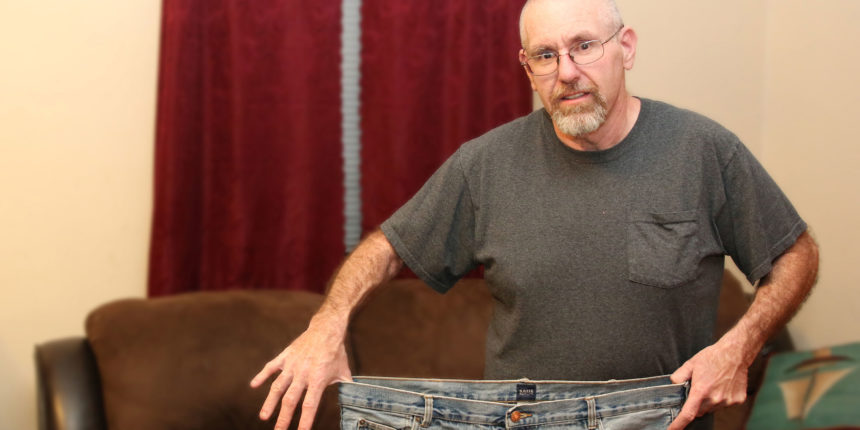Health+
Taking the Bypass

Truck driver Donald Manley’s bariatric surgery saved his job and much more
About four years ago, Donald Manley came to a major crossroads. Weighing more than 300 pounds and diagnosed with diabetes, he was risking his livelihood. “I drive trucks, and I couldn’t do that if I were on insulin,” he says. Manley decided it was time to change course.
After consulting with his Primary Care Physician, Pedro Falla, MD, Manley went to the Southcoast Center for Weight Loss. There, he went through the recommended educational seminars and learned about all the weight-loss methods available, including medically managed weight loss and three surgical options: Roux-en-Y gastric bypass, laparoscopic sleeve gastrectomy and adjustable gastric band. Ultimately, Manley and his bariatric surgeon, Donald Colacchio, MD, determined that a Roux-en-Y gastric bypass would be the best solution for him.
“Obesity is one of the most prevalent health problems in this country,” said Rayford Kruger, MD, medical director of the Southcoast Center for Weight Loss. “But only 1 percent of the population that qualifies [as morbidly obese] for bariatric surgery gets the procedure done.”
Manley, however, was one of that one percent, and is much happier for it. His procedure was done with a minimally invasive technique, and he was up and walking the same day and spent just one night in the hospital. For two weeks after the surgery, he followed a strict low-sugar, low-fat, full-liquid diet, which included pureed oatmeal, smooth yogurts, puddings and cream soups. He then progressed to semi-solids — soft, moist foods easily mashed with a fork for the next six weeks.
“It’s a big change to go through,” he said, “but it got easier as I went on.” Eventually, Manley was able to add in solid foods in their proper amounts, each carefully selected for nutritional value.
Of course, Manley wasn’t alone in his post-surgical weight-loss journey. Through the Center for Weight Loss, he attended patient-support programs—some of which provide instruction on food intake and exercise, while others offer psychological, social and emotional support.
“It’s been two years now, and I still work at it everyday,” reported Manley, who no longer needs to take medication for diabetes and has lost 120 pounds overall. Even though he got his weight down as low as 150 pounds, he has hovered between 175 and 180 since then. To get to his preferred weight of about 160, Manley will make use of another program from the center: Back on Track. “Things happen in life; it’s easy to get derailed,” said Manley. “Back on Track helps you refresh your memory or tweak things a bit.”
Know Your Options
The Southcoast Center for Weight Loss offers educational seminars that will give you important information about the types of weight loss surgery that are available, how they will affect your body and what you should expect in terms of lifestyle changes once the surgery is done. The seminars are free and are offered in seven convenient locations. If you decide surgery is a good choice for you, the Center will coordinate everything that is needed from your primary care physician and insurance providers.
